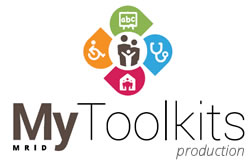Central to the Co-Design and person-centred approach is ensuring that the health service meets the needs of the client group. The first step involves assessing the needs and priorities of that group and identifying how to address them.
Achieving integrated care is fundamentally about changing the culture of healthcare; it’s more a sociological phenomenon rather than a technological phenomenon. KW Kizer, The King’s Fund
For families and carers seeking support for individuals with complex health conditions, finding expert advice can be difficult. Assistance from a health service in coordinating access to a range of required professionals can be invaluable.
 Making Integrated Care Work
Making Integrated Care Work
Primary health care services, hospitals, specialists and disability service providers use different systems and language, which can make communication and integrated care more difficult. There are even more challenges in regional and remote areas which may not have local access to specialist services.
There is no one single model of integrated care. One of the most important factors enabling integrated care to succeed is the participation of the consumer.
In receiving services, consumers or carers act as a vital link between service providers. They can explain what’s working and what’s not, what they need more or less of – they act as expert consultants to the health team supporting them. Engaging consumers in the development, implementation and ongoing evaluation of health services is therefore critical to the effective provision of coordinated and community-based care.
Collaboration between professionals from varying agencies can be complicated, due to the differing practices, procedures and expectations of individual parties. However, there are many benefits for care delivery when efficient and holistic interagency relationships are developed.
A Multidisciplinary Approach
So what does a health service need to put in place to create person-centred integrated care systems for their clients? Strategies may involve:
- Consultation between professionals and consumers during service development.
- Allowing Co-Design principles to shape day-to-day clinic practices as well as the overarching approaches to service design and delivery.
- Appointing a dedicated co-ordinator to facilitate ongoing communication with consumers, carers and other service providers.
- Employing a range of specialist health professionals (including medical and allied health professionals) to support to consumers as a core clinical team.
- Development of documentation and data collection processes to consolidate information and meet each party or agency’s requirements.
- Willingness to hold clinics at alternate sites; e.g. childcare centres, schools, day programs.
- Willingness to consider innovative solutions and to think outside the box to overcome barriers and improve standards of care.
- Provide a comprehensive, multidisciplinary range of specialist services for children, adolescents and adults with AS and their carers.
- Provide carer support programs and counselling for families and carers.
- Liaise with other local agencies to build their capacity to provide services to clients.
- Increase consumer participation in all aspects of service development, implementation and evaluation.
- Develop systems for data management and analysis to ensure optimal care quality.
- Focus on preventative health strategies to improve outcomes for the AS population.
- Provide education and training to staff and mainstream health community services.
- Provide a platform for integrated research regarding the natural history of AS.
To achieve these aims the AS Clinic works in partnership with:
- Individual families, including siblings, grandparents and extended families
- The Angelman Syndrome Association
- Specialist medical clinicians
- General practitioners
- Allied health professionals
- Mental health professionals
- Ageing, Disability and Home Care
- Regional and remote primary health care providers
- Schools
- Non-government disability service providers
- University researchers
A multidisciplinary approach, which involves interagency collaboration, can take time to develop. Through trial and error, commitment and ongoing evaluation over many years the AS Clinic has worked alongside families with children with AS.
The role of integrated care in transforming health care service delivery has been explored at length by The King’s Fund. The following publications in the Read More section below, available online at The King’s Fund’s website, may be of particular interest:
- Kizer KW. Achieving Integrated Care (presentation), The King’s Fund, May 2012
- Ham, C & Walsh, N. , The King’s Fund, Mar 2013.
- Ham C, Dixon A, Brooke B. Transforming the delivery of health and social care, The King’s Fund, Sep 2012




